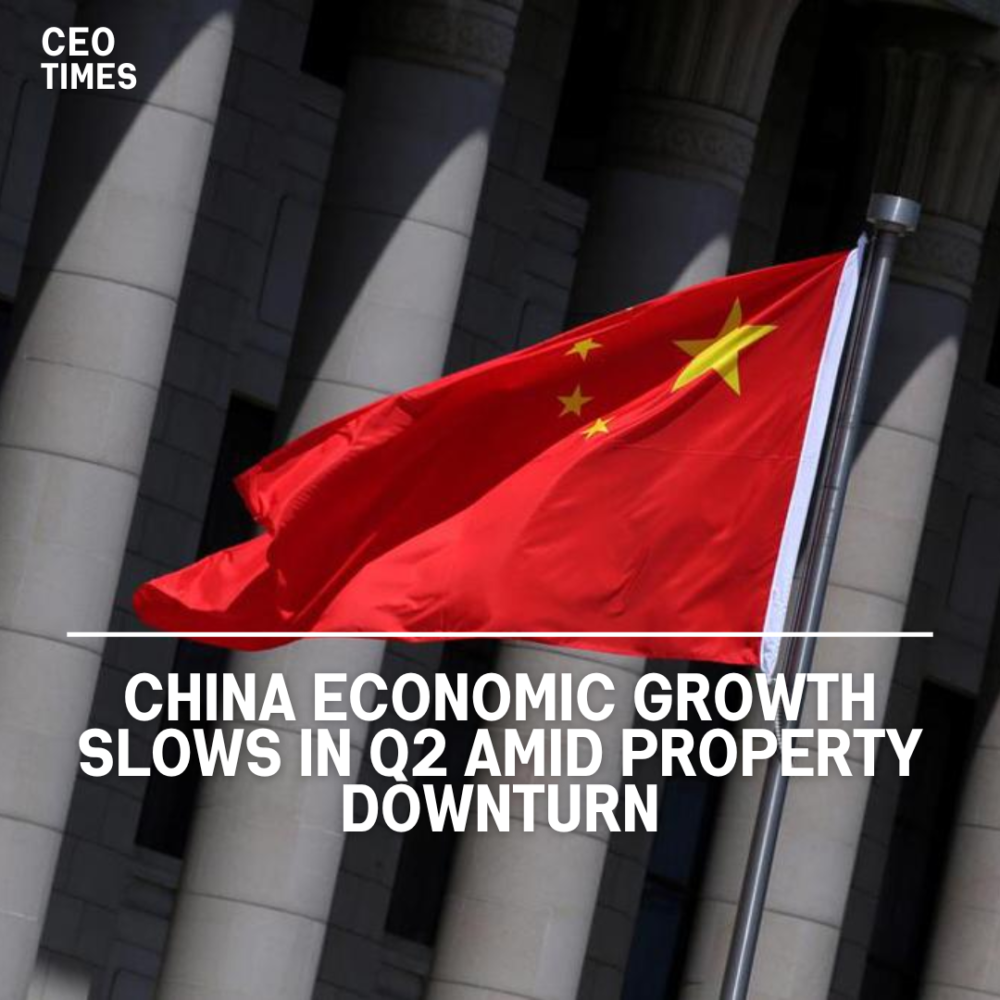China economy expanded by 4.7% in the second quarter of 2024, significantly below the expected 5.1% forecast in a Reuters poll and down from the 5.3% growth recorded in the first quarter. This slowdown highlights ongoing economic challenges, particularly in the property and job markets.
Impact on Consumer Sector:
The consumer sector showed particular weakness, with retail sales growth hitting an 18-month low. Deflationary pressures forced businesses to cut prices on various goods, including cars, food, and clothing.
This reflects a broader negative wealth effect caused by declining property and stock prices and low wage growth due to cost-cutting across various industries.
“Overall, the disappointing GDP data shows that the road to hitting the 5% growth target remains challenging,” said Lynn Song, chief economist for Greater China at ING.
Property Market Crisis:
The protracted property crisis worsened in June, with new home prices falling at their fastest rate in nine years. This decline further eroded consumer confidence and limited the ability of debt-laden local governments to raise funds through land sales.
The property market troubles have had wide-reaching effects, exemplified by Swatch Group, the world’s largest watchmaker, which reported a significant drop in sales and earnings due to weak demand in China.
Policy Response and Stimulus Expectations:
Analysts expect addressing debt and boosting confidence to be key themes at an upcoming economic leadership meeting in Beijing. However, resolving one of these issues could complicate efforts to address the other.
The Chinese government aims for a 5.0% growth rate in 2024, a target many analysts consider ambitious given current economic conditions. Following the second-quarter slowdown, Goldman Sachs revised its growth forecast for China to 4.9% from 5.0%.
“To counteract weak domestic demand, we believe more policy easing is necessary through the remainder of this year, especially on the fiscal and housing fronts,” said Goldman Sachs economists, led by Lisheng Wang, in a note on Monday.
According to the National Bureau of Statistics (NBS), China’s economy grows by 0.7% every quarter, down from a revised 1.5% in the previous quarter.
Market Reactions and Future Outlook:
China’s yuan and stock markets initially fell following the disappointing economic data. However, share markets later closed higher as investors bet on the likelihood of more stimulus measures from Beijing.
China has increased infrastructure investment and directed funds towards high-tech manufacturing sectors to combat weak domestic demand and the property crisis.
As China navigates these economic challenges, the focus will be on how effectively Beijing can implement additional stimulus measures to stabilize growth and restore confidence in both the property market and the broader economy.




















